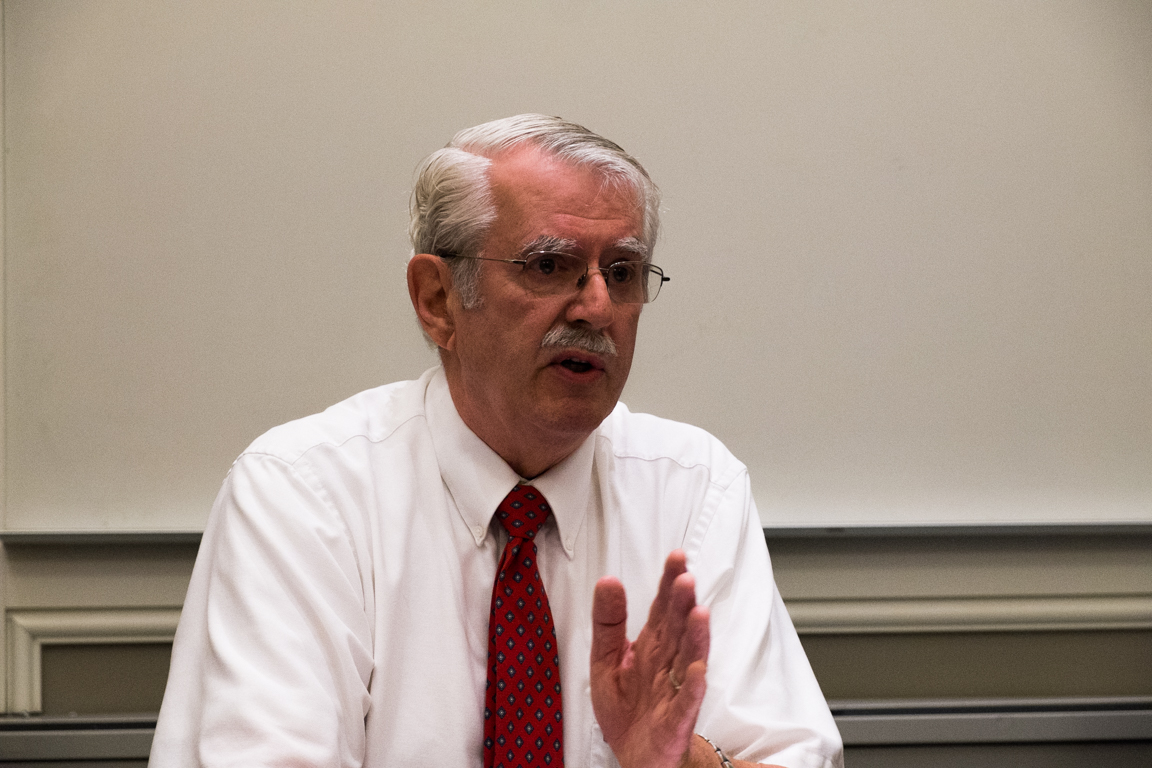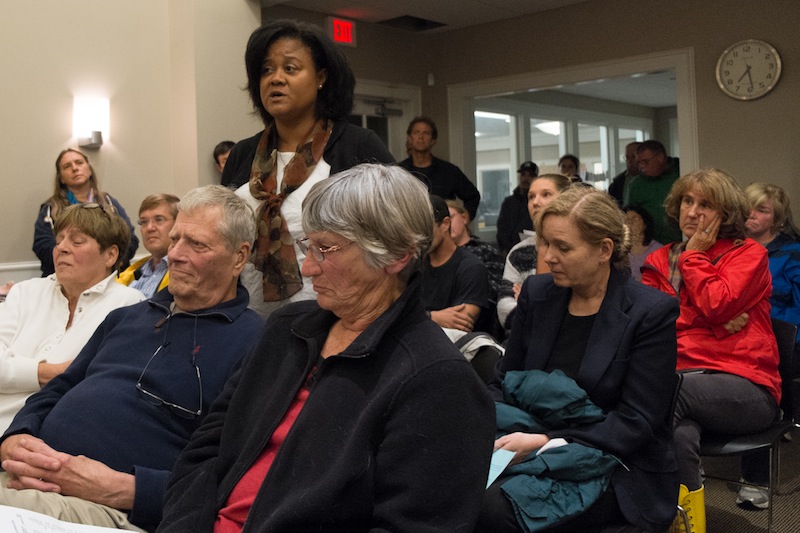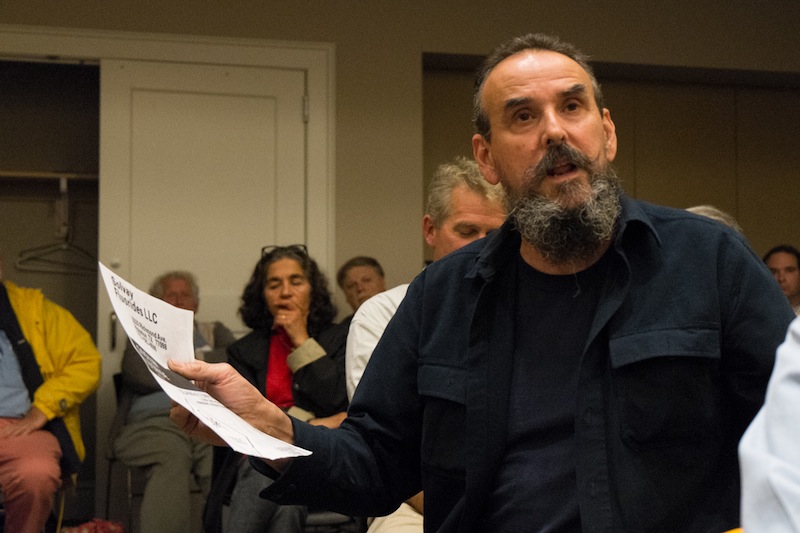The question of whether Oak Bluffs should continue to fluoridate its water supply was the subject of heated debate Thursday before the Oak Bluffs board of health, with emotions running high on both sides of the issue.
The question remains unresolved after Thursday’s meeting; the board did not vote and board members said they would take the issue under advisement and discuss it at the next few board of health meetings. At least one board of health member said he thought the matter should be decided by a town meeting vote.
Oak Bluffs has been adding fluoride to the water supply since 1992, and it is now the only town on the Island to do so. The discussion about eliminating fluoride began last spring. Board of health member Dr. John Campbell said he had received calls from people concerned about fluoride. The water district also advocated for removal, saying it costs the town about $15,000 a year.
A June hearing about the issue was sparsely attended. But about 40 residents gathered in the Oak Bluffs library meeting room Thursday for a second hearing, with many offering comments. Some members of the public said they were concerned about risks associated with fluoride and the lack of control over what goes in the drinking water. Others, including several Island dentists, said concerns were based on misinformation and fluoride is important for public health.
Mr. Campbell, the board of health member, spoke at length early in the meeting about the history of fluoride use in the United States, and argued that fluoridating the public water supply denied people the right to choose.
“It’s about the relative safety or lack thereof of chlorides in our drinking water and the choices that we have on how we are or are not to be medicated,” he said.

Some in attendance made heated remarks saying that it was inappropriate for a board member to present opinion as fact during a public meeting.
Clarissa Stead, 22, of Oak Bluffs, said she believed people should be able to decide the matter for themselves, adding that bottled drinks, toothpaste and mouthwash contain fluoride. “So if you are for fluoride, you have the option to have fluoride when you want it,” she said. Her remarks were followed by applause.
Scott Pieringer of Oak Bluffs spoke about the health risks of fluoride, which he said is more toxic than lead and only “slightly less toxic than arsenic.”
Those in favor of fluoridation said that major health organizations, including the American Dental Association and the World Health Organization, support fluoride in drinking water.
Jennifer Kingsley, a biologist, cited the Center for Disease Control, which says that fluoridation is one of the top 10 advancements in public health over the last 100 years.
Ms. Kingsley was interrupted by those who oppose fluoridation. Tensions were high throughout the meeting, and board chairman William White reminded the crowd to be civil.

Garrett Orazem, a dentist with a practice in Vineyard Haven, said he has seen a clear change in his patients’ dental health with fluoride added to the water, especially among children. “The decay rate is remarkably low,” he said. “They are still getting cavities,” he added. “But the cavities are small. They are easy to fix. They don’t make me do things that may cause trouble later.”
Bruce Golden, an Island pediatric dentist, said he had done a Google search for fluoride. “The entire first page is anti-fluoridationists with half-truths and lies,” he said. After a few pages, he said, “you get to the science.”
Myron Allukian, a clinical assistant professor at the Boston University school of dental medicine, joined the meeting for five minutes by phone. He said that in Boston, fluoridation has made a huge difference in the health of children. “There are still dental needs, but we have cut the extent of the disease and the amount of disease in half if not more,” he said, adding that every surgeon general since 1951 has supported fluoridation and every major reputable health organization also supports it.
He said studies of the internet have shown “shocking” misconceptions.
Island endodontist Karen Gear said “fluoride is extremely important” for those without access to dental care.
At the end of the meeting, Herbert Combra said he was more confused than before the meeting began. While $15,000 was not much to spend when considering the potential benefits, he said, “I’m more confused because I don’t know who to believe.”








Comments (27)
Comments
Comment policy »